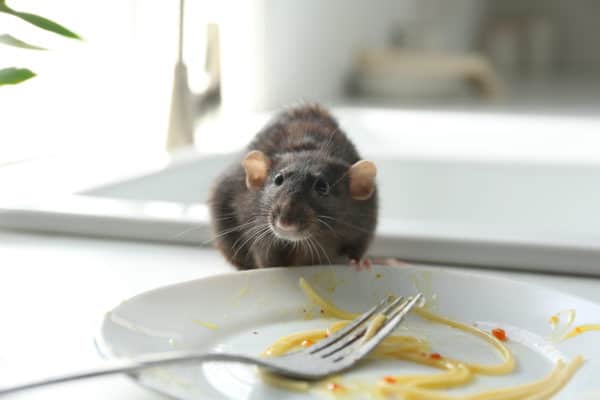READY TO GET STARTED?
REQUEST A FREE ESTIMATE
Fill out the form below or call (888) 466-7849 for a free, no-obligation estimate.

As the corona virus continues to spread, people around the world are drastically changing their daily routines. Tourism has come to a grinding halt. Restaurants are closed and people are staying home. What many don’t realize is this change in our daily lives is also affecting the ecosystem within cities. As there is less urban traffic, there is less food for pests and rodents – like rats. According to experts, if rats lose these established food sources (e.g. trash in cans in the park or dumpsters outside restaurants) then they will start fighting over any food that remains, even going so far as to kill each other in order to survive.
Because rats are having to get creative in finding new food sources, there is now a trending surge of rats invading homes and essential businesses in search of their next meal. Rats will follow the smell of food into homes, being as bold as necessary to find food in their effort to survive. Rats in homes pose serious risks – they will chew through wires and cables putting you at risk for fires and they carry diseases of their own which can easily be transmitted to you and your family. While there is no evidence that rats themselves can become infected with corona virus, there is some risk for spreading it to humans. Rats are known to crawl through sewer pipes containing human feces which has been shown to contain the virus. They then make their way into your home and contaminate any surfaces they touch with the virus-laden feces, potentially allowing humans who come in contact with these contaminated surfaces to contract the virus. The CDC reports that although this scenario is possible, the risk of transmission by feces is actually quite low.
To protect your family and/or essential business, the following rat prevention tips can help to prevent a rat infestation, limit the spread of disease, and keep your environment a safe-haven, during shelter-in-place orders and in the future:
If you notice a rodent problem in your home or essential business, contact a professional pest control company. Rats can cause serious health risks to your family or employees, as well as the risk for fire and other structural damage to your home and property. A licensed wildlife exclusion company will inspect your home to identify your animal problem, determine where they are getting in, remove them, and prevent the animals from getting into your home in the future. They can also inform you of any existing damage or contamination and provide you with a recommendation for repairs or clean-up.
5 Things That Could Be Attracting Termites to Your Home
Summer Wildlife Removal: Common Home Invaders
What is the Difference Between Traditional and Green Pest Control?
Categories